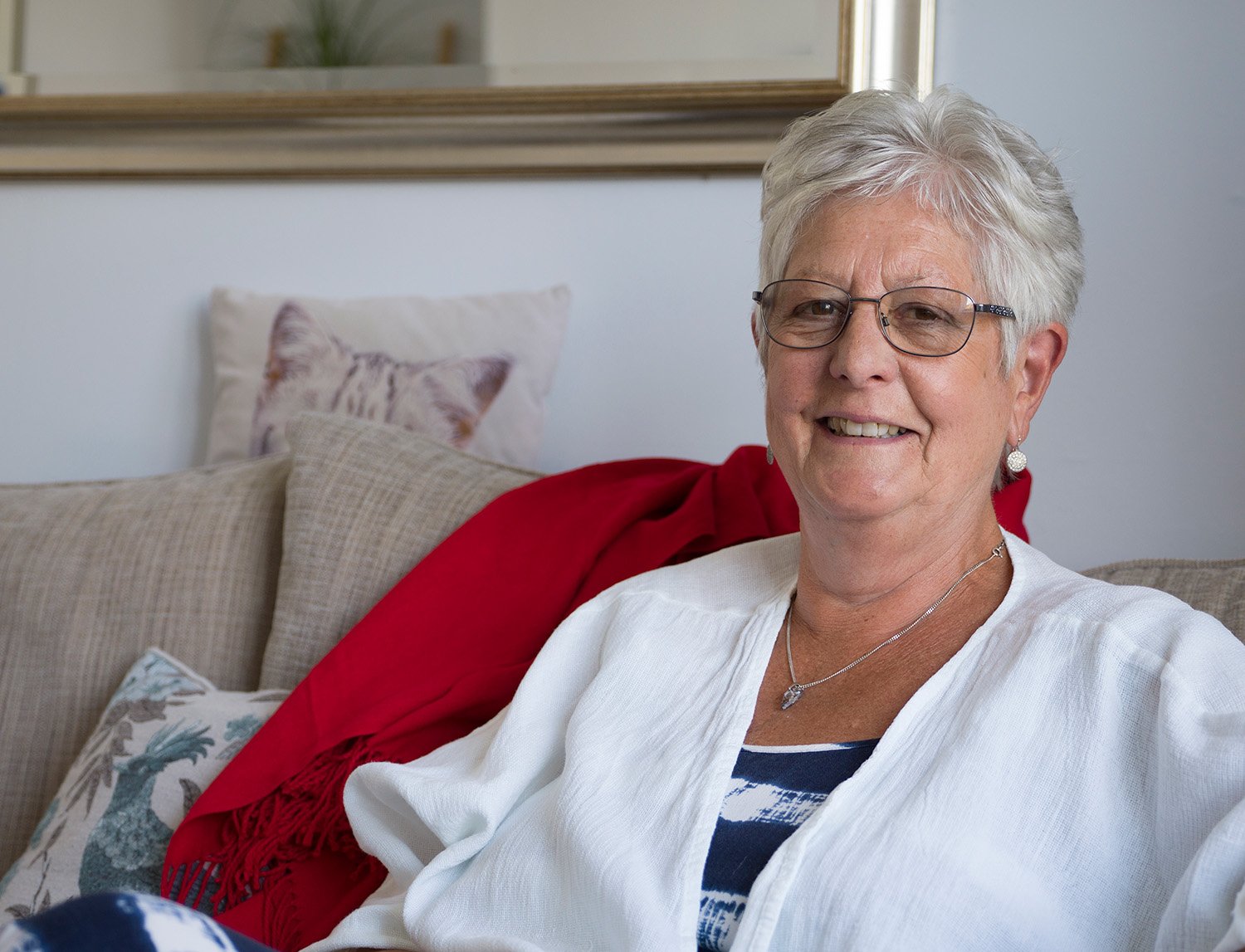What matters most?
Barbara
Barbara was first diagnosed with multiple sclerosis (MS) over 40 years ago. It came as a great shock to her. At the time of her diagnosis, her daughter was 18 months old and her son was slightly older.
The doctor told her that as a diagnosis based on symptoms alone, she could either have a brain tumour or MS. Further tests and scans were needed and eventually a diagnosis of MS was given. Barbara was relieved that she didn’t have a brain tumour. “A brain tumour felt more final really to me, especially with two little children.” Despite her relief, she knew her life would not be the same again, she was a single mum with two small, very dependent children and now her whole world had changed, her dreams and plans no longer viable and the future unknown and scary.
As her condition progressed, she began to feel more frequently the effects of MS. “As time went by after my diagnosis, I had several times where I lost sight in my eye. It affected my balance nerve too. That was pretty horrible because I was now on my own with two little children. I could be so ill that I couldn’t stand up or get down the stairs, I was throwing up and the children helped me to get down the stairs. They were only around six and eight when this happened.”
Her MS has now become progressive, which means Barbara’s symptoms will get worse over time. Barbara does miss the things in life that she hasn’t been able to do, “The MS is just eating away at me slowly. It's not much fun. There was so much I wanted to do but I couldn't do it. I know. I'm lucky because I can walk short distances. But it really wasn't what I was planning.”
As a young mum, Barbara’s diagnosis and the departure of her two children’s father meant that she could not return to the nursing profession as she wanted to. After raising the children from a young age, Barbara went on to get a part-time job at a family-run business. This role was selected for being less stressful than nursing, as Barbara doesn’t react well to stress. Her whole nervous system can go into meltdown and it effects how she can function.









